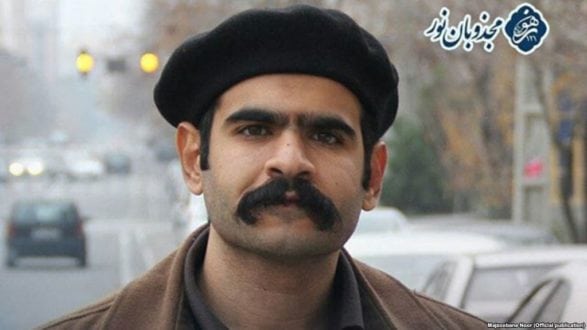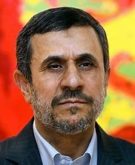Radiofarda – A website that exclusively reflects news concerning Iranian Sufi dervishes reports that one of the admins of the site, Kasra Nouri has been sentenced to a twelve-year prison sentence, 74 lashes, two-year exile in a remote city and deprived of all social rights.
The verdict was issued in absentia by the notorious judge, Mashaullah Ahmadzadeh, the head of Branch 26, Tehran’s Revolutionary Court.
Ahmadzadeh, as a rule, presides over the courts assigned to trials of religious minorities and people newly converted to Christianity.
Two days earlier, the wife of one of the detained dervishes had reported that Sufi prisoners, protesting unjust legal procedures, decided not to attend their hearing.
Nevertheless, Judge Ahmadzadeh sentenced five of the protesters to 12/13-year imprisonment, in absentia.
The International Federation of Human Rights Societies has described the trial of dervishes as “a mockery of justice” shrouded in “cover-ups” and “a blatant violation of international principles and standards.”
Iranian security forces on February 19 arrested Kasra Nouri, while he was covering the violent dispersal of Gonabadi dervishes, protesting the intelligence agents who barricaded a street leading to the residence of their 90-year old spiritual leader, Noor Ali Tabandeh in northern Tehran.
Earlier, on February 16, for the second time in less than two weeks, security and intelligence agents swarmed Pasdaran Avenue in northern Tehran, where Tabandeh’s residence is located.
Gonabadi dervishes rushed to the scene to force the agents to leave.
After 7 a.m. on February 19, clashes broke out between the supporters of Tabandeh and security and Baseej (the Islamic Revolutionary Guards Corps’ militia) forces.
Police special units supported by plainclothesmen attacked the protesters and battered dozens of dervishes.
Hundreds were arrested. Footage of dervishes with head injuries and broken teeth and jaws were widely circulated on social media. Three policemen and a member of paramilitary Baseej were also killed.
While suffering physically, many of the detainees were taken to prisons and kept in unbearable conditions in solitary confinement, according to social media reports and images. The detained dervishes were tried behind closed doors without access to lawyers.
At the time and in the heat of clashes with the security forces, Kasra Nouri told Radio Farda, “Some 100 policemen attacked the dervishes and fired at them. We are worried about our security in the area, while we are defending our leader, Dr. Nour Ali Tabandeh. Our resolve is to defend him up to the last drop of our blood.”
Later, Kasra Nouri was among hundreds of Gonabadi dervishes who were battered during clashes in front of Tabandeh’s residence and placed behind bars. Since February 19, Nouri had been kept in Greater Tehran Central Prison in Fashafouyeh, 132 km (82 mile) south of the capital.
Noori had been arrested and spent time in prison before, accused of anti-regime activities.
Out of 500 dervishes who were detained during protests outside the residence of Gonabadi Sufi’s spiritual leader, 360 are still in custody.
On July 22, U.S. Secretary of State Mike Pompeo blasted Iran’s ruling elite and its religious leaders for using their positions to “line their pockets”, while ignoring the rights of Iranian citizens, including dervishes.
Dervishes are members of a Muslim (specifically Sufi) religious order who have taken vows of poverty and austerity. Dervishes first appeared in the 12th century; they were noted for their wild or ecstatic rituals and were known as dancing, whirling, or howling dervishes because of the practices of their order.
There are various orders of dervishes, almost all of which trace their origins to various Muslim saints and teachers, especially Shi’ites’ main Imam Ali bin Abi Talib. Dervishes spread into North Africa, Afghanistan, Balkans, Caucasus, India, Iran, Pakistan, Tajikistan and Turkey.
 Shabtabnews In this dark night, I have lost my way – Arise from a corner, oh you the star of guidance.
Shabtabnews In this dark night, I have lost my way – Arise from a corner, oh you the star of guidance.



